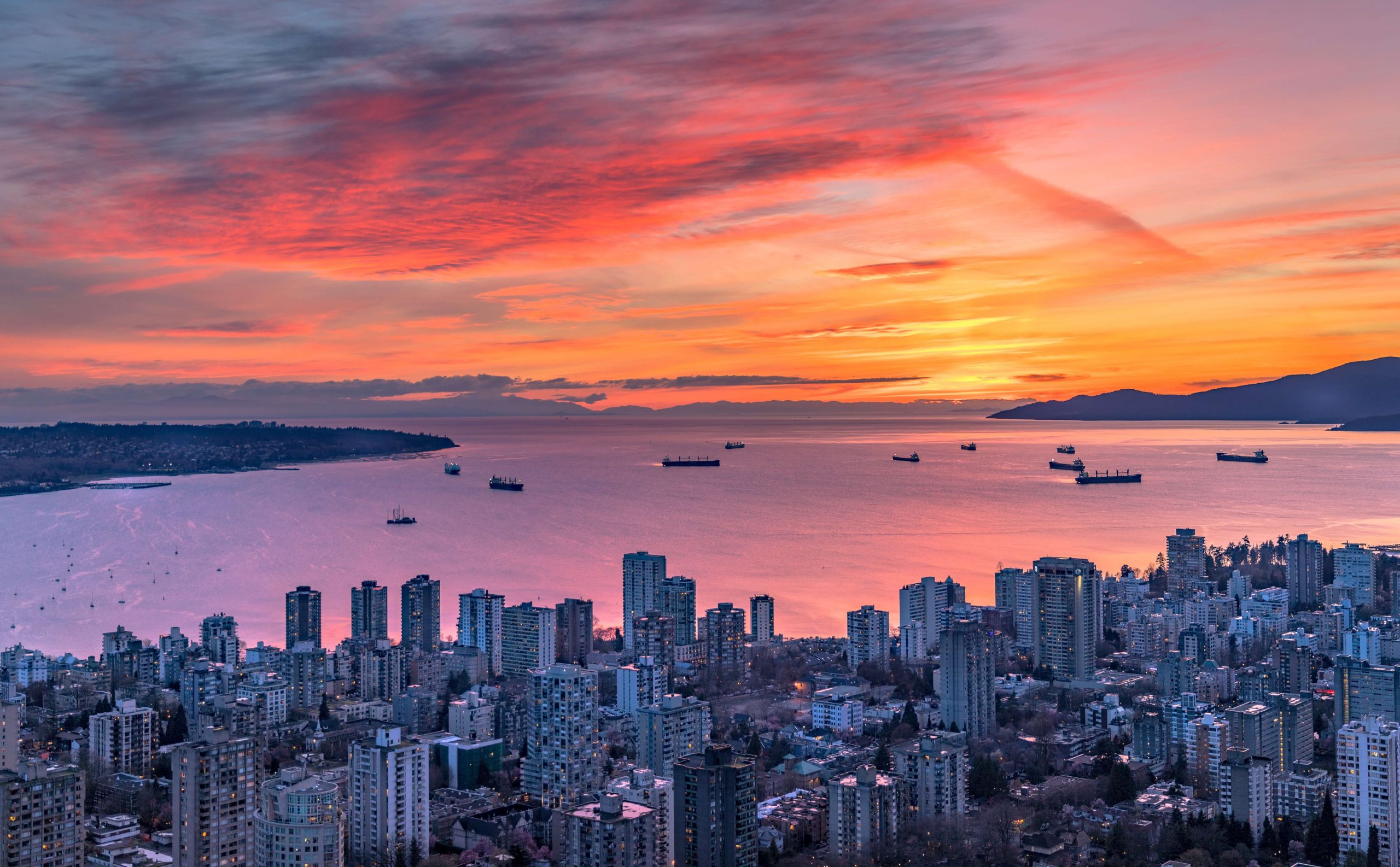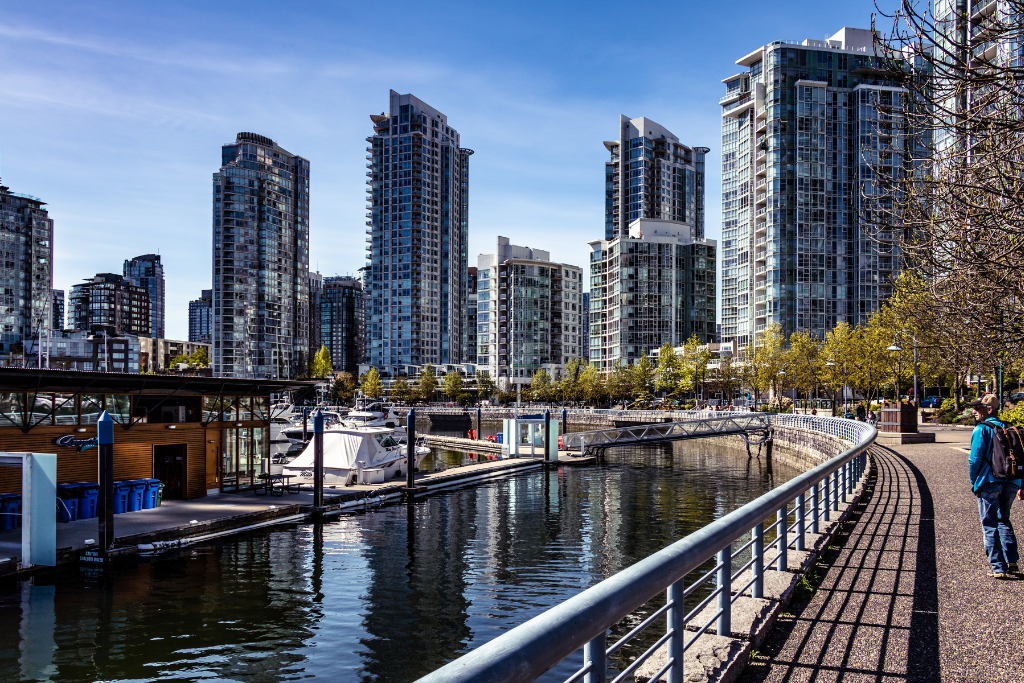The Average Electricity Rates in BC
How Does Electricity Work in BC?
The way electricity works in BC is extremely eco-centric because most of the electricity is generated from clean and renewable sources. 87% of BC’s electricity comes from large hydroelectric power. The rest of it comes from forest biomass, wind, and landfill gas.
The BC. Utilities Commission (BCUC) under the Utilities Commission Act regulates the electric utilities in the province and the BC electricity rates. BC Hydro has the authority to generate and distribute electricity to consumers, businesses, and BC utilities. Residents of BC cannot purchase their electricity from retail alternatives to BC Hydro and FortisBC.
Here’s a list of regulated utilities:
- Crown-Owned Electric Utilities:
- British Columbia Hydro and Power Authority
- Investor-Owned Electric Utilities:
- Corix Multi Utility Services Inc.
- FortisBC Inc.
- Hemlock Utility Services Ltd.
- Silversmith Power & Light Corporation
- Yukon Electrical Company Ltd.
As for BC hydro rates, customers are charged one rate for electricity up to a specific threshold in each billing period, and a higher rate for all electricity use beyond that threshold. This stepped rate is designed to encourage conservation.
The threshold for the lower Step 1 rate is calculated by multiplying the number of days in the billing period by 22.1918 kWh per day. Billing periods can vary based on when customer meters are read. The 22.1918 kWh per day is the daily equivalent of 1,350 kWh for the average two-month billing period.
For example, a 60-day billing period would have a Step 1 threshold of 1,332 kWh (60 days x 22.1918 kWh per day). A 58-day billing period would have a 1,287 kWh (58 days x 22.1918 kWh per day) Step 1 threshold.
What Are the Factors Affecting the Cost of Electricity?
The following factors affect the cost of electricity (hydro) generation:
- Transmission and distribution system
- Power plant costs
- Weather conditions
- Regulations
- Seasons and location
- Utility
- Type of user (residential, farm, business, industry, etc.)
- Power factor (2% surcharge if your average power factor for the billing period falls below 90%)
- Threshold (stepped rate structure)
- Cost of electricity itself
- Regulatory costs
- Taxes
A smart thermostat helps regulate temperature throughout the day and night to reduce energy consumption and costs. TELUS SmartEnergy is an energy management solution that provides convenient control of your smart thermostats and smart plugs in one easy-to-use app, helping you lower your household budget through energy savings.
Monitor and optimize your home’s energy use, identify consumption habits, automate energy-saving actions for your connected devices, and earn rewards by participating in energy-saving events.
What Are the Average Monthly Electricity Rates in BC?
Both BC Hydro and FortisBC charge you on a 60-day period.
Cost of Electricity in BC Based on Time-of-Use Rates
There are two different types of rates available in BC depending on what utility you go for:
- Time-of-Use (TOU): Depends on when you use electricity, Off-peak and On peak.
- Tiered: You can use a certain amount of energy each month at a lower price. Once you exceed the threshold, the price goes up accordingly.
| Time-of-Use (FortisBC) | Rate |
Summer (July, August)On-Peak Hours:
Off-Peak Hours:
|
23.207 ¢/kW.h8.163 ¢/kW.h |
All other monthsOn-Peak Hours:
Off-Peak Hours:
|
25.207 ¢/kW.h8.163 ¢/kW.h |
- Fixed Customer Charge: $47.84 per two-month period
- FortisBC only provides electricity in the Southern Interior region of BC
Tiered:
| Company | Fixed Customer Charges (60 Days) | Threshold | Rate< threshold | Rate>Threshold |
| BC Hydro | $13.51 | 1,350 kWh | 10.97¢/ kWh | 14.08¢/ kWh |
| FortisBC | $47.84 | N/A | 14.960 ¢/ kWh | N/A |
| Electricity (kWh) | BC Hydro Monthly cost | FortisBC Monthly cost |
| 1200 kWh | $154.71 | $203.44 |
| 1500 kWh | $196.95 | $248.32 |
| 2000 kWh | $267.35 | $323.12 |
| Total Average @ 1500 kWh/month | $232.21 | |
BC Hydro (Jan 2025) & FortisBC (Jan 2025)
The Average Rates for BC Water Bills
How Does Water Work in BC?
The way the water works in BC is that there are 122 privately owned water utilities serving approximately 20,000 households in the province of British Columbia. The Comptroller of Water Rights, assisted by staff in the Utility Regulation Section, regulates and oversees the whole operation of these utilities.
These water utilities deliver safe domestic water to your home and take care of the wastewater too. In return for these services, you pay an amount proportional to the usage in a month.
The pricing per unit of water depends on the season.
- High season (drier months): When demand on the water system is high, rates are 25% higher to reflect the added cost of supplying water to the city.
- Low season (rainy season): It rains a lot from mid-October to April, and hence the water supply is at its peak. Residents and commercial businesses enjoy a low off-peak rate.
The charges can vary from city to city and your local water utility. Most water bills in BC have two main components:
- Fixed fee component: Costs of billing, meter maintenance, and future meter replacement
- Variable amount: Includes the cost of drawing water from the water source, treating, pumping and delivering the water to your house. Sewer metered charges are also variable. Water meter data is wirelessly collected from reading devices mounted to vehicles every billing cycle.
What Are the Factors Affecting the Cost of Water?
Here are a few factors that affect the cost of water:
- Maintenance and upgrades to the water system
- Type of home
- Meter size
- Household members
- Seasonal usage
- Appliances
- Water treatment plant costs
What Are the Average Rates for Water Bills per Month in BC?
| Period | Average Rate Per Cubic Meter (m3) | Metered sewer rate |
| High season (May 1 – October 15) | $4.743 | $5.507 |
| Low season (All remaining months) | $3.784 | $5.507 |
Average Monthly Water Bills Based on Meter Size in BC
| Meter Size (mm) | Average Fixed Cost |
| 25mm | $39 |
| 40mm | $84 |
| 75 mm | $260 |
Average Monthly Water Bills by Cubic Meter in BC
| Cubic Meter (m3) monthly usage | Average Cost $10.25/m3 |
| 10 m3 1-2 people | $103 |
| 20 m3 2-3 people | $205 |
| 30 m3 3-5 people | $308 |
Average Natural Gas Prices in BC
How Does Natural Gas Work in BC?
The way natural gas works in BC is similar to other provinces like Ontario and Alberta. As a BC resident, you can choose your own natural gas provider. The gas utility can be a regulated retailer or a competitive retailer.
There are a number of authorized natural gas retailers who serve the residents of BC. These residential natural gas providers include:
- Access Gas Services
- Direct Energy
- Just Energy
- Planet Energy
- Summitt Energy
If you choose to sign up for a retail natural gas plan, FortisBC will continue to deliver your gas and bill you for your usage, but the terms of the agreement with your retail provider will be applicable too. Deregulated natural breaks your natural gas bill into two parts: supply and delivery:
- Supply charges: Comes from the retailer and accounts for the amount of natural gas you use each month.
- Delivery charges: Comes from the utility (like FortisBC) and cover transportation and delivery costs.
You can also get fixed rates from a retailer instead of variable natural gas rates from a utility.
FortisBC (natural gas) is the largest distributor of natural gas in British Columbia, serving over 1,030,000 customers. FortisBC’s natural gas is about one third the cost of electricity in BC, so you can save a lot if you opt for a gas furnace.
If you go for a regulated utility like FortisBC, you’ll have to pay the following:
- Basic charge per day
- Delivery charge per GJ
- Storage and transport charge per GJ
- Cost of gas per GJ
What Are the Factors Affecting the Cost of Natural Gas?
British Columbia has abundant natural gas resources. Two of North America’s most promising natural gas plays – the Montney and Horn River – are located in British Columbia. Natural gas is traded in a competitive market where the sellers put gas on sale and the buyers (gas utility companies) bid for purchase.
Here are a few other factors that affect the cost of natural gas in BC:
- Municipality
- Transmission and distribution service area
- Storage and transport charge
- Season (winter or summer)
- Delivery charge
- Usage
What Are the Average Monthly Natural Gas Prices in BC?
As of January 1, 2025, FortisBC residential gas customers saw an overall increase in their bill ($14.25 more per month).
Here are the residential natural gas rates for FortisBC:
| Area | Basic charge per day* | Delivery charge per GJ | Storage and transport charge per GJ | Cost of gas per GJ |
| Mainland and Vancouver Island (including North and South Interior) | $0.4216 | $7.476 | $1.397 | $2.230 |
The average monthly natural gas bill in BC is:
| Average monthly consumption | Basic charge30 Days | Delivery charge | Storage and transport charge | Cost of gas | Total monthly bill* |
| 8 GJ | $13.07 | $59.81 | $11.18 | $17.84 | $101.89 |
The Average Internet Prices in BC
How Does the Internet Work in BC?
Telecommunications are federally regulated in Canada through the Canadian Radio-Television and Telecommunications Commission (CRTC). Local Internet Service Providers (ISPs) deliver internet services, like TELUS, to households.
There are four popular types of internet connections from various internet providers available in BC:
- DSL (5-45 Mbps)
- Cable (20-200 Mbps)
- Fiber-optic (50-1000 Mbps)
- Satellite (50-150 Mbps)
You can use the National Broadband Internet Service Availability Map by the Government of Canada to see which ISPs operate in your area. These ISPs’s charge you based on type of connection, the internet speed (download and upload) and bandwidth.
What Are the Factors Affecting the Cost of My Internet Plan?
Here are the factors that affect the cost of your internet plan in BC:
- Speed and bandwidth
- Rural or urban (urban prices approximately 13% lower than rural prices)
- Type of internet connection (DSL, cable, fiber-optic, or satellite)
- ISP
- Add-ons
What Is the Average Cost of Internet Bills per Month in BC?
According to the CRTC, Canada’s administrative tribunal regulating broadcasting and telecommunications, the average person in BC (Vancouver) pays $75 per month for a 50/10 Mbps service with unlimited monthly data transfer. Here are the average Internet costs in BC based on type of connection and speed.
| Type of Internet | Mbps | Average Cost |
| DSL | 30/5 Mbps | $29.95/month |
| Cable | 75/7.5 Mbps | $40.00/month |
| Fiber-optic | 250/250 Mbps | $80/month |
| Satellite | 100 Mbps | $129.99/month |
The Average Cost of Cable TV in BC
How Does Cable Work in BC?
While IPTV and other streaming services are slowly replacing cable TV, some people still love the classic legacy cable TV. Cable TV works even in bad weather conditions and runs even if you don’t have access to an internet connection. Cable TV also has exclusive local channels that might not be available on your streaming service.
Many local cable TV providers are working in BC, offering various packages, prices, and features. Typically, you are charged based on how many basic and exclusive channels you opt for.
What Are the Factors Affecting the Cost of Cable?
Here are the factors that affect the cost of cable:
- Area of service
- External factors (local competition, downturn in the cable market, etc.)
- Local or provincial taxation and fee laws
- Costs of shows and broadcasts
- Cable prices
- Number of channels
- Type of channels (sports, international, local, news, entertainment, etc.)
- HD Channels
- VOD (Video on Demand) availability
What Are Some Affordable Alternatives to Cable?
Legacy cable means “cables,” and lots of them. If you don’t want to get into the hassle, here are a few affordable alternatives to cable:
- IPTV
- Satellite TV
- YouTube TV
- FuboTV
- Shaw TV
- CipherTV (AEBC)
- VMEDIA TV
- Telus Optik TV
What Is the Average Cost of Cable TV per Month in BC?
Here are the cable costs in BC based on their basic package type of plan.
| Cable TV Company Name | Plan and Basic Channels | Rates |
| Teksavvy | Basic Package (47 Basic Channels) | $25.00 |
| Novus Entertainment | Basic Package (25 Basic Channels) | $15.00 |
| Freedom TV | Starter TV (30 basic Channels) | $10.00 |
Teksavvy (Jan 2025), Novus (Jan 2025) & Freedom (Jan 2025)
The Average Cost of Home Phones in BC
How Do Home Phones Work in BC?
Fixed landline use is declining in British Columbia, but many households still use it for quick and reliable communication. Both rural and urban households still use basic wire line telephone services.
Many home phone service providers in BC offer unlimited calling within Canada and USA with low long-distance calling rates. The price plans differ based on the features being offered.
Here are a few features you should look for in a home phone plan:
- Caller ID with name
- Remote voicemail access
- Call waiting with caller
- Caller ID block
- Voicemail
- Long-distance calling
- Smart Ring
What Are the Factors Affecting the Cost of Home Phones?
Here are some of the factors that affect the cost of home phones:
- Number of countries included in the plan
- Added taxes or fees
- Added features like (Long-distance calling, 3-way calling, caller ID block, online account management, etc.)
- Voicemail
- Call waiting
What Is the Average Cost of Home Phones per Month in BC?
How Much Is the Average Monthly Cost of Home Phones in BC?
The average monthly cost of home phones in BC is $21.31.
| Company Name | Plan and Inclusions | Rates |
| Virgin Plus | Month-to-month planUnlimited Canada-wide talk, conference calling, Voicemail 10, call display, call waiting, call forwarding. | $20/mon.(+ $135 one-time charge for Home phone hub) |
| TELUS | Home Phone Lite Plan Unlimited local calling with 1 calling feature included | $32/mon. |
| Voiply | Plug and play planUnlimited nationwide calling with free shipping and a free adapter + 2 months free and over 20 features | $11.95/mon. |
*** Phone activation, connection fees and other one time charges are not included in the rates above.
Voiply (Jan 2025), Virgin Plus (Jan 2025) & TELUS (Jan 2025)
City of Vancouver Average Utility Bill Cost
Vancouver city is the capital of British Columbia. Half of all British Columbians live in the metropolitan area of Vancouver. It is in the top 5% of the most expensive cities globally and frequently ranks highly as one of the world’s most livable cities. The cost of living in Vancouver is $3,793.63 per month with a one bedroom apartment.
Average Monthly Utility Bill Cost in Vancouver
| Utility | Average Monthly Cost |
| Electricity 1500kWh/month | $232.21 |
| Water ($10.25/m3 *10 for 1–2 people) | $103 |
| Gas (8 GJ/month) | $101.89 |
| Internet 50/10 Mbps-Unlimited | $75 |
| Cable | $16.66 |
| Home Phone | $21.31 |
| Total average utilities cost in Vancouver (Gas not included) | $448.18 |
FortisBC (Jan 2025), Vancouver.ca (2024) & BC Hydro (Jan 2025)
The Average Cost of Utilities Across Canada
| Province | Electricity | Water | Gas | Internet | Cable | Home Phone | Total Monthly Cost |
| Quebec | $242 | Included in hydro | $85 | $69 | $33 | $30.65 | 374.65$ (gas not included) |
| Ontario | $92.95 | $90.40 | $221.89 | $64.00 | $36.33 | $34.00 | $317.68 (gas not included) |
| Alberta | $91.70 | $71.88 | $61.65 | $74 | $20.00 | $23.47 | $251 (electricity not included) |
| British Columbia | $232.21 | $244 | $101.89 | $75 | $16.66 | $21.31 | $447.07 (gas not included) |
| Manitoba | $90.82 | $73.90 | $90.83 | $67.00 | $50 | $47.85 | $329.57 (gas not included) |
| Saskatchewan | $152.29 | $100.36 | $123.94 | $69.00 | $75.00 | $25.21 | $421.86 (gas not included) |
| PEI | $149.59 | $105 | $280 | $72 | $32.25 | $23.31 | $382.15 (gas not included) |
| New Brunswick | $135.36 | $100 | $124 | $70 | $40 | $23 | $368.36 (gas not included) |
| Nova Scotia | $195 | $108 | $179 | $71 | $25 | $21 | $426.67 (gas not included) |
Conclusion
Some rates of the utilities in BC this year increased and others are the opposite. Utilities ensure that your household functions properly and remains comfortable, but the cost is recurring and variable. Knowing average household utility costs can help you reduce your usage and save tons of money at the end of the year.
Are you moving to BC soon? Check out 7 things to know when moving to British Columbia.





